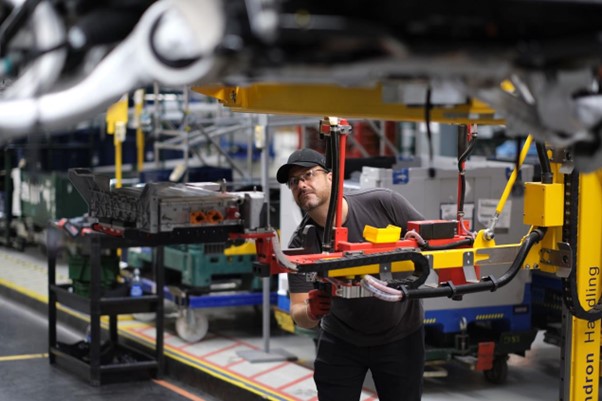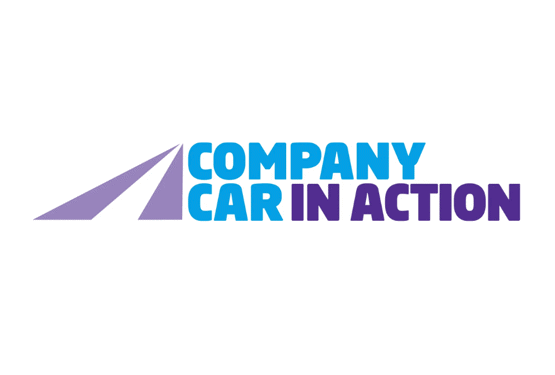The UK’s automotive trade body has described the imposition of tariffs on US imports as “deeply disappointing”.
President Donald Trump has confirmed that new import taxes of 25% on cars and car parts entering the US will apply to the UK, with a 10% blanket tariff also applied to all US imports from the UK.
Prime Minister Sir Keir Starmer has repeated that “nothing is off the table” when it comes to how the UK might respond to Donald Trump’s tariffs.
“Today marks a new stage in our preparation,” he said. “We have a range of levers at our disposal and we will continue our work with businesses across the country to discuss their assessment of the options.”
Having been in negotiations with the US in an attempt to avoid tariffs, Starmer repeated it was the Government’s intention to “secure a deal”.
Starmer added that “we must rise to this challenge”.
The PM has previously said he does not want to get into a trade war with the US, but the UK “reserves the right” to introduce reciprocal tariffs.
Mike Hawes, SMMT chief executive, said: “The announced imposition of a 10% tariff on all UK products exported to the US, whilst less than other major economies, is another deeply disappointing and potentially damaging measure.
“Our cars were already set to attract a punitive 25% tariff overnight and other automotive products are now set to be impacted immediately.
“While we hope a deal between the UK and US can still be negotiated, this is yet another challenge to a sector already facing multiple headwinds.”
He added: “These tariff costs cannot be absorbed by manufacturers, thus hitting US consumers who may face additional costs and a reduced choice of iconic British brands, whilst UK producers may have to review output in the face of constrained demand.
“Trade discussions must continue at pace, therefore, and we urge all parties to continue to negotiate and deliver solutions which support jobs, consumer demand and economic growth across both sides of the Atlantic.”
Sue Robinson, chief executive of the National Franchised Dealers Association (NFDA), believes that the cumulative effects of these tariffs will be “profound”, impacting dealers who she says have already shown “remarkable resilience” in the face of economic challenges, as well as manufacturers and the broader automotive industry.
“I urge the Government to take swift and decisive action to safeguard jobs and protect our industry during these unprecedented times,” she added.
Some eight million cars were imported to the US last year, equating to $240 billion (£185bn) in trade and approximately half of overall sales.
Mexico is the largest supplier of cars to the US, followed by South Korea, Japan, Canada and Germany.
For the UK, the US is the second largest car export market after the EU, with just over 100,000 cars exported in 2023 at a value of £6.4 billion, according to the Office for National Statistics. This accounted for 18.4% of all UK car exports.
Paul Holland, managing director for UK/ANZ Fleet at Corpay, including UK brands, Allstar and Keyfuels, believes it will have “significant repercussions” for UK fleet operators and the broader automotive industry.
“It could increase vehicle acquisition costs, while it could also cause manufacturers to redirect vehicle supplies to other markets, which could affect fleet operators' ability to procure specific vehicle models,” he said.
“Fluctuations in vehicle prices and market dynamics may impact the residual values of fleet vehicles, complicating financial planning and lease agreements.”
He added: “Over the past five years, fleet operators have been challenged by Covid, Brexit and increasingly volatile trading conditions, all of which have made getting growth momentum very difficult.
“While the UK Government is actively engaging in negotiations with the US, I hope these discussions take place at pace and lead to decisive action, limiting the impact on our nation’s businesses.
“My advice to UK fleets is to stay informed of ongoing trade negotiations and tariff developments to anticipate potential changes in vehicle pricing and availability.
“It is important to work with your partners to review and adjust plans and understand where efficiencies can be achieved to maintain operational efficiency in such turbulent times.”
UK jobs at risk due to Trump’s tariffs
A new report from the Institute for Public Policy Research (IPPR) suggests that the imposition of tariffs will put extreme pressure on the UK car manufacturing industry, threatening jobs and economic growth.
More than 25,000 direct jobs in the car manufacturing industry could be at risk as exports to America are predicted to fall, with UK employees at Jaguar Land Rover and the Cowley Mini factory seen as some of the most exposed.
Pranesh Narayanan, research fellow at IPPR, said: “Trump’s tariffs have huge potential to completely destabilise the UK car manufacturing industry, affecting tens of thousands of jobs and putting the government’s growth plans at jeopardy.
“However, as one door closes another one opens. There is huge untapped potential in manufacturing green planes, trains and automobiles and selling them at home and abroad.
“If the Government use the upcoming industrial strategy to drive investment in these sectors, this could be the spark that leads to thousands of new consumers to start buying British and buying green.”
Cara Haffey, industrials and services leader at PwC UK, pointed to 2024 figures from the SMMT which show that the UK exported more than 101,000 units to the US, representing 16.9% of cars exported.
“Tariffs of any kind will therefore have considerable repercussions for the UK automotive sector,” she added.
“OEMs are having to consider their pricing strategies and responses, and we’ve seen announcements already across Europe for pricing updates. Particularly in the luxury car market, US consumers are both a key buyer and target.
“UK automotive companies are now reconsidering their manufacturing site maps and exploring how they can expand existing US operations and assessing creating long-term US-based operations, if the market is or could be very important to their brand.
“This is very much long-term thinking, as such sizeable decisions take time to both plan and deliver.”
Supply chain considerations
Tariff announcements will also bring a greater need for automotive companies to fully understand and map their supply chains, according to Haffey.
“There are also potential grounds for issues where goods of varying origin are mixed into a single component, or if specific trade partners are treated differently, e.g. China to USA,” she said.
“UK manufacturers can adapt their supply chains by looking at raw materials and parts that are impacted and assessing whether there are now economic benefits in localised sourcing.”
Dom Tribe, automotive aector Leader at PwC UK, added: “UK automotive companies can adopt several different strategies to counter the effects of US tariffs, such as the localisation of assembly or manufacturing operations in North America to avoid tariffs, while maintaining market access, although this takes time and requires significant capital.
“Additionally, they can consider diversifying or repositioning their supply chains to areas/regions that are less affected by any imposed tariffs, with vehicle production and key components being manufactured across Europe or multiple countries for example, to hedge against tariff and trade agreement disruptions.
“Companies could explore ways in which they could create greater product differentiation, such as more sustainable, luxurious or technologically advanced products that bring added value which consumers are willing to pay a premium for.”
Strategic alliances, such as partnering with US firms (e.g. contract manufacturers or other OEMs) with a US footprint could also help with reducing costs including shared distribution networks, warehousing etc.
The suspension of the IRA budget may present an opportunity for UK companies to advance their own sustainable automotive solutions well beyond the US, which could then give the UK a competitive advantage, that some US customers are willing to pay a premium for.
“Finally, a push for subscription-based vehicle ownership models could help dilute the vehicle cost within a total cost of ownership model, reducing the exposure to tariffs that impact the asset cost, but not the service costs,” continued Tribe.
“As vehicles become more software defined (SDV), a lot of the hardware features that are impacted by tariffs, will be exempt, as they are replaced by software with wireless updates, that means fewer maintenance parts and, potentially, lower cost of ownership for customers.”
Market dynamics
The ever-growing divide of state-level variability in legislation, (e.g. California vs. Texas), may mean that UK automotive exports must create more variants of vehicle exports to comply with state legislation, which increase product mix, complexity and costs.
“With shifting emissions policies in the US, there may be a reduced demand for high-efficiency UK vehicles, coupled with a growing complex regulatory landscape, which will likely create additional compliance costs and increase time-to-market,” explained Tribe.
“With higher prices resulting from tariffs, there could be a shift in how long consumers keep their cars for. Some may move away from purchasing new vehicles altogether and buy second-hand.
“Others may look at buying non-premium vehicles (or premium vehicles with fewer options, if brand loyalty is strong), which will have a big impact on customer loyalty and profitability for OEMs that typically make larger profits on high-optioned vehicles.
“Companies may also look to adjust their contractual terms with US businesses buying-in components for assembly, by moving to cost plus models and/or flow-through pricing mechanisms, that would allow increased prices to be passed on to US businesses more easily.”





















Login to comment
Comments
No comments have been made yet.